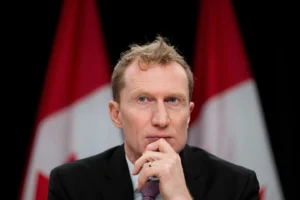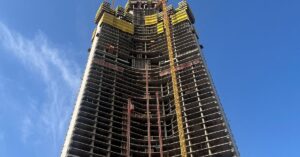The Nigerian currency, Naira, after it appreciated to N380 to the Dollar on Thursday relapsed by two points on the last trading day of the week (Friday) to 382 at the parallel market, just as the nation’s external reserves declined by $489 million in 14 days, latest figure on the official website of the Central Bank of Nigeria (CBN) has revealed.
The naira, over the weekend, traded between 382 and 381 per dollar and also dropped against Pound and Euro, and exchanged in the black market at 492 and 422, respectively.
The closing rate of 305.35 to the dollar at the official market on Friday was slightly better than the previous rate of 305.4 and weakened price of 305.90 per dollar against the quoted rate of 305.45 last Wednesday.
Nothing changes at the Bureau De Change (BDC) window, the Naira remained at the regulated rate of N362 to the Dollar, while the Pound Sterling and the Euro closed at N495 and N423.
Also, at the Investor and Export FX window, the local currency opened at 381.56 per dollar and closed at 381.00, representing an appreciable rate compared to the closing rate of 381.81 within the week under review.
However, at the interbank market, the local currency traded sold at 314.63 to the US dollar, while it exchanged at 404.85 per Pound Sterling and 352.98 to the Euro, against 319. 99 to the Dollar, 414.79 per Pound Sterling and 360.24 to the Euro, it traded earlier in the week under review.
Consequently, the apex bank has continued to inject fresh capital to boost liquidity in the forex market, with injection of forex to lift the foreign exchange market, selling $391.50 million at the interbank window, comprising (1) spot delivery for invisibles worth USD86.50 million, and (2) sales to SMEs and wholesale users totaling USD50 million and USD200 million respectively.
Asides that, it also auctioned an undisclosed amount of dollars to settle a backlog of foreign exchange demand for airlines, fuel and raw material importers. However, the result of the auction was unavailable at the time of writing.
Last week’s programme brings the total amount of CBN intervention to approximately N6.65 billion, since January.
A check on the volume of trading on the IEFX, revealed that approximately USD1.51billion has been sold by autonomous sources between April 28th and May 19th, 2017. That said, the naira — in the interbank market — strengthened against the basket of currencies tracked.
This assisted marginally in stabilising the naira against the greenback, deepening dollar inflow into the market.
The CBN Acting Director, Corporate Communications, Isaac Okorafor, speaking to the journalists last week reiterated that the CBN will continue to make every necessary intervention in the interbank market to sustain the supply of forex to meet legitimate foreign exchange demands by customers.
He stated that the efforts of the CBN in sustaining the intervention in the forex market is beginning to post some positive effects, as the Naira is making steady gain against major currencies.
This goes to reaffirms the CBN Governor’s pledge at the Tuesday Monetary Policy Committee press briefing on the need to sustain the forex intervention to ensure the convergence of the forex rates.
Although, the external reserve has risen by $4.7 billion since the beginning of the year, now standing at $30.49 billion, compared to $30.93 stood two weeks ago. But this followed continued actions by the CBN in the in the foreign exchange market.
The external reserves last week dropped by $145.7 million or 0.48 per cent from $30.66 billion it opened to $30.5 billion on Thursday.
This is less than a week, the Monetary Policy Committee (MPC) of the CBN concluded its two day bi-monthly meeting in Abuja, with retention of all status quo unchanged.
The last time the local currency recorded any gain was last Wednesday when it strengthened by five points against the dollar, from 385 to 380 at the parallel market.
The MPC left the Monetary Policy Rate unchanged at 14 per cent, as well as the Cash Reserves Ratio at 22.5 per cent.
The CBN Governor, Mr. Godwin Emefiele, who announced the decision of the committee at the end of a two-day meeting held at the apex bank’s headquarters in Abuja explained that the members of the committee agreed to maintain the
current monetary policy stance.
The governor said the committee also voted to retain the Liquidity Ratio which was left at 30 percent; and the Asymmetric Window which was left at +200 and -500 basis points around the MPR.
It would be recalled that some financial experts had earlier in the week called for a downward review of the Monetary Policy Rate (MPR) by the Monetary Policy Committee (MPC) to 12 per cent from 14 per cent, to enhance economic recovery.








